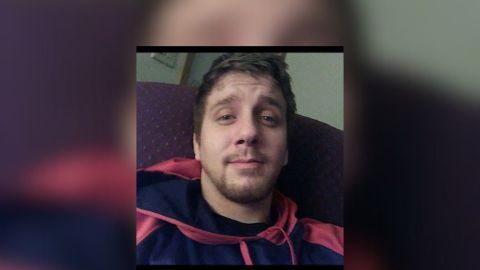ST. PAUL — A state-funded program that helps people get down payments to become the first in their families to buy homes will become permanent, if the Legislature passes the House omnibus housing budget bill.
The program, established in 2023, helped 600 families become homeowners in the first seven months of its existence, according to Rep. Esther Agbaje, DFL-Minneapolis. Of those 600 families, 90% were from underrepresented communities, Agbaje said.
One provision of the larger budget bill would make the program permanent and change the maximum loan amount from $32,000 to 10% of the home price. Agbaje said the change would allow more homes to be accessible to more people as home prices are high in Minnesota.
The program provides forgivable no-interest loans to help with down payments, closing costs or principal reductions. To be eligible to apply for the loan, a person must never have owned a home or had their home foreclosed on, and had a parent in the same scenario. Their income must also be at or below the statewide median income.
If the home is sold or rented to someone else within five years the loan has to be paid back.
The bill would give $100 million to the Midwest Minnesota Community Development Corp., which administers the funds for the program.
According to Minnesota Housing, the program was launched to, "give a boost to renters who have historically been shut out of the market."
Agbaje, who authored the bill, said at its introduction that the program helps close the disparities in homeownership in Minnesota, which correlates with improving communities.
"This bill gives us an opportunity to make good on the state's investment and the people of Minnesota for the long term," Agbaje said. "We are giving people a hand up to get into home ownership that allows them to better take care of their families and communities."
The overall housing bill gives the Minnesota Housing Finance Authority nearly $320 million. The money will allow for the sale of $100 million in bonds to increase the supply of housing in the state.

Two years ago, the Legislature approved more than $1 billion for housing. Despite that historic level of spending, lawmakers from both political parties agree the state still has a shortage of affordable housing.
“The fact is, this state is 106,000 housing units down,” Rep. Spencer Igo, R-Wabana Township, said as he presented the bill at a meeting of the House Ways and Means Committee on Tuesday, April 22. “The average age of buying your first home is 38 years old, and the average mortgage is over $2,500 a month.”
Igo said the bill would take a step in fixing some of those issues. He called it a bipartisan effort.
“We worked really collaboratively together to come up with a bill that not only focuses on brick and mortar, building more homes, but we also focused on things to keep people in their homes,” Igo said.
Report for Minnesota is a project of the University of Minnesota’s Hubbard School of Journalism and Mass Communication to support local news in all areas of the state.
-
There was standing room only for much of the Nevis City Council's monthly meeting on Feb. 9, 2026, as the Council considered continuing its support for a local skate park.
-
Corey Adam Bryant was last seen in Bemidji on Dec. 19, 2025, but was last in touch with family in January 2026.
-
Plus: Northern, MN to become Northern MN's newest city; and 14 Northland athletes competed in the Alpine Ski state tournament Feb. 10, 2026.
-
Minneapolis businesses are estimated to have lost $10 to $20 million in sales each week of Operation Metro Surge, which began in December 2025.
-
An administrative law judge ruled in favor of the township's petition to become a city while denying Bemidji's counterpetition to redraw its boundary around Lake Bemidji.
-
The School Board voted down the alternative schedule 4-2. In the coming months, the district will have to figure out how else to cut 12% of its budget.
-
Three rural Northern Minnesotans placed at the state alpine ski meet in Biwabik on Feb. 10, 2026.
-
Duran, a Republican from Bemidji, was first elected to the Minnesota Legislature in 2024.
-
The unprecedented federal incursion brought 1000s of immigration officers to MN over the objections of local Democratic leaders, and led to massive protests and two deaths.
-
Plus: St. Louis County seeks resident input on updates to its hazard mitigation plan; and United Way of 1000 Lakes is accepting Volunteer of the Year nominations.














